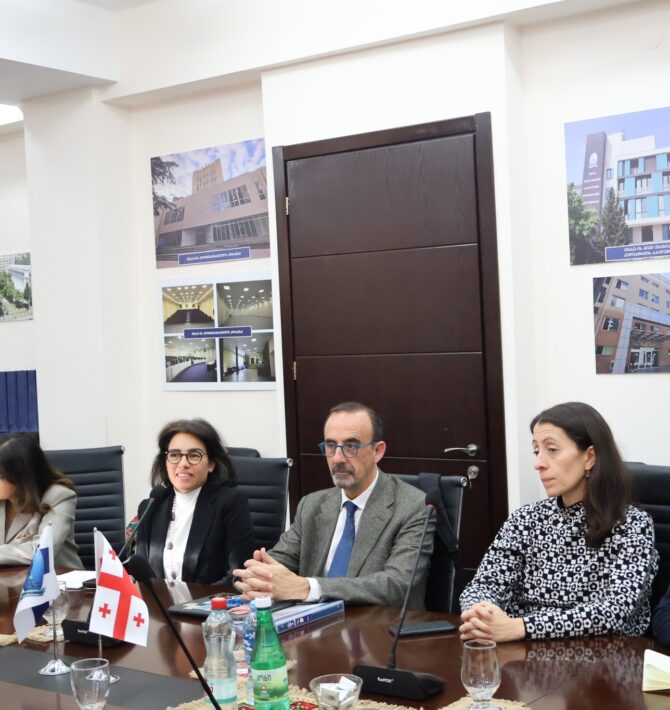World Bank Representatives Visit Tbilisi State Medical University
Luis Benveniste, the World Bank’s Global Director for Education, recently visited Tbilisi State Medical University (TSMU) as part of his mission to Georgia. During his visit, he observed the activities supported by the World Bank and met with project beneficiaries, as well as representatives from schools, universities, the government, and the private sector.
The World Bank delegation also included notable representatives such as Roland Price, Regional Director for the South Caucasus; Rita Almeida, Head of Education for the Europe and Central Asia Region; Renata Lemos, Senior Economist; Cornelia Jessi; and Education Specialist Anna Berdzenadze.
On October 28, 2025, representatives from the World Bank and the I2Q Project visited Tbilisi State Medical University (TSMU) to review the progress and results of projects funded by the I2Q Project’s Competitive Innovation Fund (CIF). “Thank you for hosting us. It’s important for us to observe how Tbilisi State Medical University is developing, analyze the existing challenges, and identify the priority issues for your university,” said Luis Benveniste during a meeting with the Rector and academic staff.
During this meeting, the academic staff discussed the institution’s achievements, the benefits gained from projects implemented with CIF grant funding, the challenges they face, and future plans. They also explored key directions for the institution’s development and strategies for the next stages of the project. “Our goal is to consistently focus on improving quality, as quality is a continuous development process. This process yields positive results in our relationships with both students and future doctors. There are many challenges in medical education, and we are committed to addressing them effectively. The projects supported by the World Bank are particularly significant for our university,” stated TSMU Rector, Professor Irakli Natroshvili.
University representatives emphasized that the projects undertaken within the framework of the I2Q project’s Competitive Innovation Fund play a crucial role in enhancing TSMU’s quality. Through the CIF grant competition, TSMU secured funding for the project “Implementation of OSTE Stations in Georgian Higher Education Institutions,” in collaboration with the Georgian American University (GAU) Medical School LLC.
The primary aim of this project is to introduce innovations in teaching and learning, including enhancing classroom instruction through modern teaching methods. For the first time in Georgia, TSMU has implemented the Objective Structured Teaching Encounter (OSTE) model, which has been used in Western countries to improve teaching and interpersonal communication skills among academic staff while promoting professional development. This groundbreaking project supports the development of new, modern approaches to staff training and establishes a faculty development tool essential for the full implementation of an integrated, modernized curriculum.
During the visit, the guests also toured the Clinical Skills and Multidisciplinary Simulation Center at TSMU. The center’s head, Professor Irma Manjavidze, presented its history, main focus areas, and innovative teaching methods.







